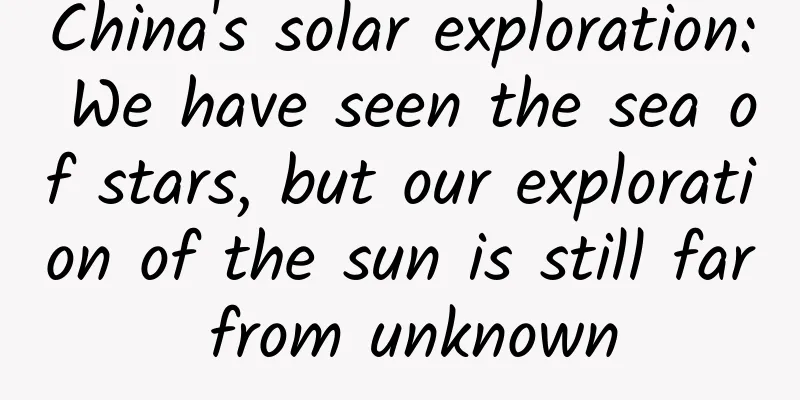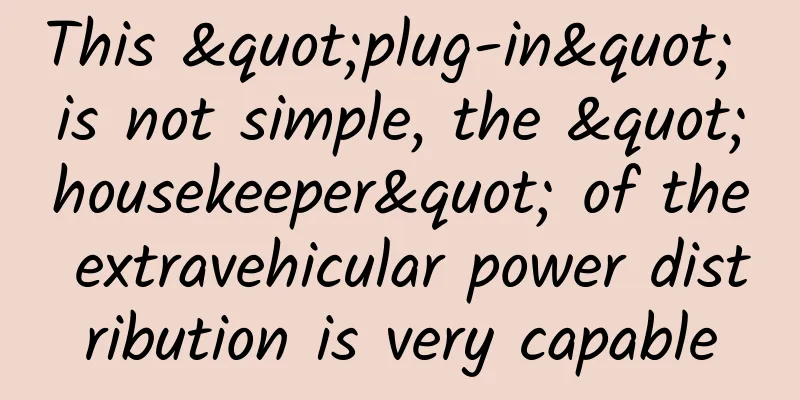Radio apps are frequently removed from shelves, and the chaos continues

|
Among the many traditional industries that have been disrupted by the Internet, radio stations are undoubtedly in the limelight. The major mobile radio stations that have emerged today not only provide a large number of audio programs, but also allow grassroots listeners to experience the thrill of being a host. However, products led by APPs such as Qingting FM, Himalaya FM, and Lizhi FM have almost all been removed from mainstream platforms such as the Apple APP Store, with the latest round happening recently. The reasons for the frequent removals have also become the focus of questioning from all walks of life. "We also want to know the reason. (The removal) has caused us a lot of trouble." On July 6, the head of the Himalaya FM channel center told the 21st Century Business Herald reporter. Just on June 30, Himalaya FM, which has 160 million users, posted on Weibo that its APP "was maliciously attacked and removed from the app store" and has not yet been restored. On April 17 this year, Lizhi FM and Duoting FM were also removed from the App Store on the same day, and both of them pointed the finger at Himalaya FM, believing that the latter had made "copyright complaints" against them. It is reported that Lizhi FM has filed a lawsuit against Himalaya FM. In an atmosphere of mutual exclusion, malicious ranking manipulation and low-level competition, these mainstream audio APP companies are experiencing a rapid but tangled growth period. The audio market is in a state of war According to the "China Audiovisual New Media Development Report (2013)", audio and video traffic has become an important factor in driving the growth of mobile data service traffic. At the beginning of 2013, mobile audio and video traffic accounted for 54% of global mobile traffic, and it is expected to account for 66% of mobile traffic by 2017. It seems not difficult to understand that traditional radios have been transformed into mobile terminal APP products, but the current audio and video market has brought such considerable economic benefits, and capital is undoubtedly an important booster. Even for several audio APP companies that have already occupied a place in the market, even if their user base has reached tens of millions or even hundreds of millions, "there is still no clear profit model, and the entire audio market is still in its early stages." Ding Daoshi, director of the Speed Tu Research Institute, said in an interview with a reporter from 21st Century Business Herald As of March 31, 2015,蜻蜓FM ranked first with 167.13 million downloads , Koala FM ranked second with 136.06 million downloads, and Himalaya FM ranked third with 122.90 million downloads. In this regard, the Sutu Research Institute analyzed that the current domestic online audio APP download volume shows a clear three-tier pattern. Qingting FM, Koala FM Radio, and Himalaya Audiobooks have been downloaded over 100 million times, ranking in the first tier; TuneIn Radio, Douban FM, Duoting FM, and Lizhi FM have accumulated over 50 million downloads, ranking in the second tier; Phoenix FM, Youting Radio, Shangting FM, and Cool FM are in the third tier, with downloads of less than 50 million. Amid the frequent delistings, the first echelon was in a state of chaos while the second echelon was accused of being full of "Infernal Affairs" dramas reported by peers. After the aforementioned Lizhi FM and Duoting FM were removed from the shelves, both parties regarded Himalaya FM as the mastermind behind the incident, and later Qingting FM also joined the condemnation. Marco, the founder of Lizhi FM, once said in an interview with the media that there is definite evidence that Himalaya FM infringed on the exclusive copyright of Lizhi FM, and that it was "very puzzling" that Lizhi FM and several other competitors were removed from the shelves at the same time. Marco said that Ximalaya FM had "malicious optimization" in the APP Store and was always "ranked second" in the APP rankings, and said "I wonder why it has not been dealt with." Coincidentally, Duoting FM, which was also dealt with at the time, released an official WeChat account accusing Ximalaya FM of "making dirty money by selling tickets" and "forcing anchors to sign unfair terms" before being removed from the shelves. There is no final conclusion as to who is right and who is wrong. Regarding the recent round of delisting crisis, the aforementioned Himalaya FM channel center manager said that he did not know the details of the lawsuit filed by competitors against the company, and that Himalaya FM is currently actively communicating with Apple on the matter. "The reason why Himalaya FM, which has been on the APP Store since 2012, was delisted is due to this malicious competition. Recently, the entire radio audio category has been at the center of the storm." "Our content is compliant with regulations, but because competitors deliberately manipulated the rankings, Apple APP Store detected a sudden change in scale and launched an investigation, which is currently underway," said the above-mentioned person in charge of Himalaya FM. Homogenization torture remains In Ding Daoshi's opinion, any field of China's Internet will be full of verbal battles as long as the market is open. The verbal battles between several audio companies over the phenomenon of fake orders are usually for the purpose of gaining market rankings, so as to ultimately obtain capital investment and a larger number of users. In contrast, the greater problem currently facing the audio market is actually homogeneity. The mainstream audio apps that have emerged at this stage are essentially platforms that present a wide range of music, sports, and literature content to users. However, due to the serious homogeneity phenomenon, each platform does not have much difference in content and technology. Ding Dao Shi said frankly that in the audio APP industry, there is no "profit model with a promising future" and that companies spending a lot of money on promotions also poses risks to the industry's prospects when subsequent profits and business models are not yet perfected. "Today's market capacity only needs one or two audio APPs, and now these dozens of audio APP companies will definitely face a future elimination mechanism. It is worth noting that behind the current situation of audio APP homogeneity and mutual exclusion among peers is the general environment in which large broadcasting organizations such as China National Radio, China National Radio and local radio stations implement full-network marketing and hope to enter as many platforms as possible. For example, programs with a large number of listeners such as "Economic Voice" and "Voice of China" will lose a large number of users if the number of contracted platforms decreases. Therefore, these traditional media will use the "dispersed contract signing" method, that is, to cooperate with multiple audio apps. "This is a contradiction that is not easy to reconcile, but audio app companies themselves should also realize that the future is about competing for content." Ding Dao Shi said. "It is already difficult to make profits from advertising, but membership fees, copyright operations, and extending from audio to the film market will be new ways out." The reporter learned that the top audio apps have gone through the initial stage of poor originality and have signed contracts with self-media to provide content for them, and copyright issues are receiving more and more attention. In addition, audio apps are also considering adding games and other products to diversify product operations in order to supplement profitability. This attempt at differentiated competition has also led to a fork in the development path of various audio apps. As a winner of Toutiao's Qingyun Plan and Baijiahao's Bai+ Plan, the 2019 Baidu Digital Author of the Year, the Baijiahao's Most Popular Author in the Technology Field, the 2019 Sogou Technology and Culture Author, and the 2021 Baijiahao Quarterly Influential Creator, he has won many awards, including the 2013 Sohu Best Industry Media Person, the 2015 China New Media Entrepreneurship Competition Beijing Third Place, the 2015 Guangmang Experience Award, the 2015 China New Media Entrepreneurship Competition Finals Third Place, and the 2018 Baidu Dynamic Annual Powerful Celebrity. |
<<: Enlight Media takes steps to "cut down the vassal states": TV division disbands and reorganizes
>>: IC Insights: Global IoT Device Market Size Expected to Reach $62.4 Billion in 2015
Recommend
Apply these 4 strategies for time-segmented delivery in SEM!
When it comes to bidding time periods, many compa...
Features and display forms of Phoenix.com splash screen ads and information flow ads
The threshold for advertising on Phoenix.com is l...
In addition to blowing your nose, you can also deal with snot in this way
★ When dealing with snot, blowing your nose or pi...
When you think of pollination, you think of bees and butterflies? There are also "big flies"!
When we think of wildlife in cities, we often for...
What is the most successful content marketing strategy?
Let’s do an experiment. If you search the words “...
Food from all over the world | Celebrate the Little New Year with Guandong candy! How much do you know about "Zaotang"?
In the blink of an eye, it’s already the Little N...
"Sleeping on a hard bed is good for your waist"? You will understand after reading this
“Sleeping on a hard bed is good for your waist” M...
2021 Clothing Short Video and Live Streaming Marketing Report
As one of the earliest categories to enter Douyin...
Childhood Shadow: Did the male praying mantis in "Black Cat Sheriff" really want to be eaten?
Produced by: Science Popularization China Produce...
Typhoon Dusurui is coming! What are the hazards? How to prevent it? Let's learn together
Typhoon Dusurui, the fifth typhoon this year, has...
Taobao discriminates against the "poor" on Double Eleven, and it's the user portrait that's causing trouble!
Double Eleven is coming soon, and many friends ha...
Search advertising or social media advertising, which one is better?
When it comes to advertising, especially digital ...
8 combinations of targeted information flow promotion methods, available for testing!
Many people don’t know how to set up the targetin...
How to use digital DPD technology to reduce the cost and increase the efficiency of router chip kits?
Part 01 Cost Advantage Currently, wireless networ...
![Hardcore Media-Product Selection Course [What Products Bring Their Own Traffic]](/upload/images/67cc0c4454046.webp)








